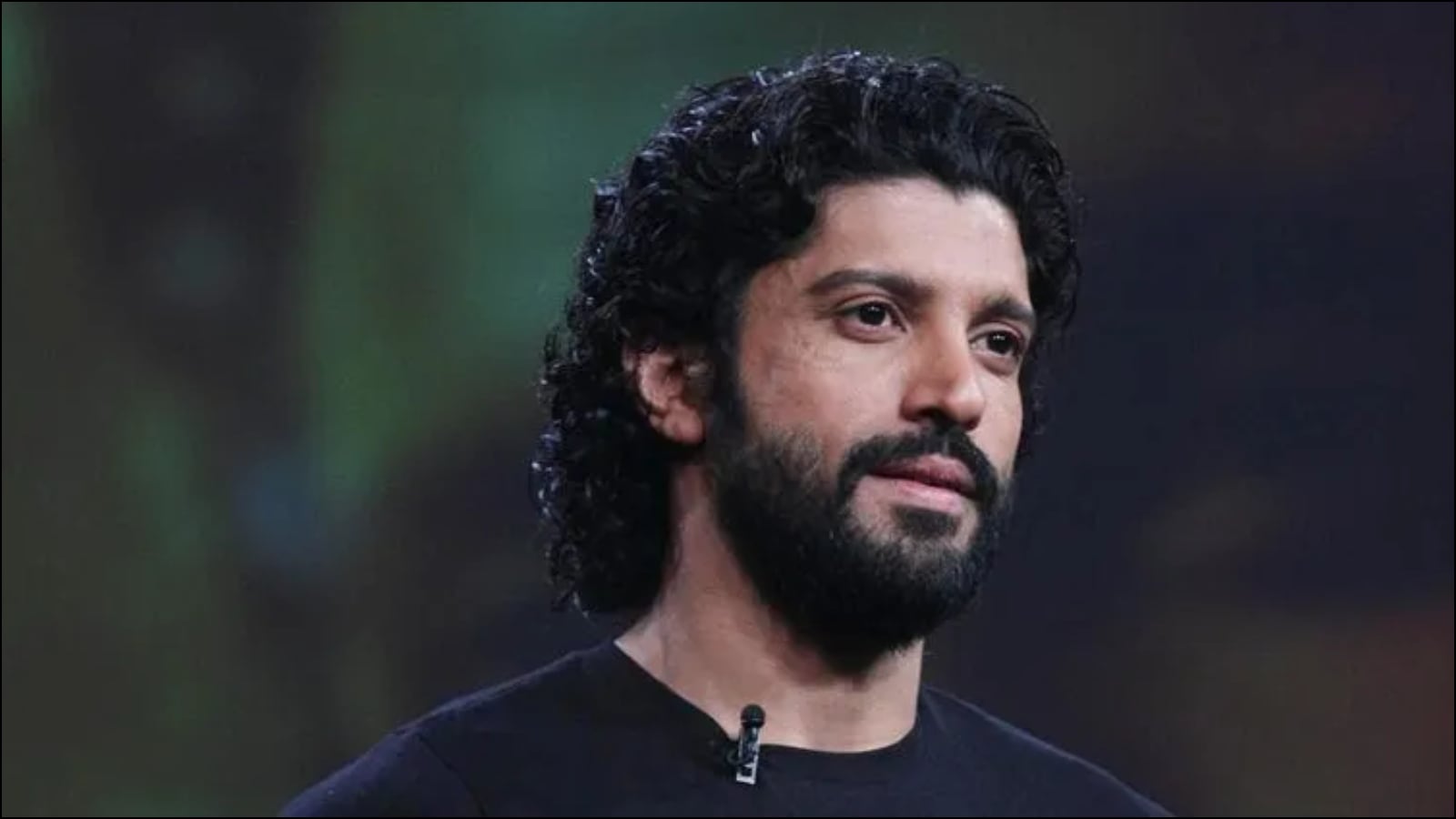📣 For more lifestyle news, click here to join our WhatsApp Channel and also follow us on Instagram
When Farhan Akhtar said patriarchal notions in society and concept of alpha males are ‘dangerous’; we ask a psychologist how
Psychologist Shivani Misri Sadhoo says "adhering to toxic masculinity could lead to long-term psychological outcomes", including emotional suppression, enhanced aggression, and difficulty in forming healthy relationships.
 Farhan Akhtar on the concept of alpha males (file)
Farhan Akhtar on the concept of alpha males (file)In a recent interview with Raj Shamani, actor Farhan Akhtar opened up on the concept of the ‘alpha male’, and how it can be harmful for society.
He said, “I don’t believe that some things should not be shown. We are in a field where, if someone tells me, ‘You can’t make a film like this’, then I’ll be like, ‘Who are you to tell me what I should and should not make?’ I am permitted by the laws of this country, and I have the freedom of artistic expression to say whatever I want. What the audience wants to listen to, that they’ll decide. I’d never ever tell any filmmaker or writer or producer or anyone, ‘Yaar don’t make this’, or, ‘This kind of movie can’t be made’. To each their own, because I don’t feel that’s right and that’s a dangerous thing to do.”
When asked what his definition of “alpha (male)” is, Farhan said, “An ‘Alpha’ means you want to be at the top of the pyramid. That’s basically what ‘alpha’ means. ‘Alpha male’ is the leader of a pack. That you want to be the leader of a pack… The minute you get into the discussion of ‘I am better than you’, ‘I am stronger than you’, ‘I am braver than you’, ‘more courageous than you’, I am sure there are actually people like that also, in terms of they’ll be good at dealing with certain situations better than others.”
The ‘Alpha Male’ archetype arises from men labelling themselves as dominant, superior, or the frontrunners in society, according to Shivani Misri Sadhoo, Psychologist and relationship counsellor. While the terminology and the concept is nothing new, their re-entry into Gen-Z discourse is. Teenagers, or even tweens on the internet are proudly flaunting themselves as ‘alpha males’. When connotations evolve into something much more dangerous, how does it impact current generations, and those to come?
‘Alpha males’ and Toxic masculinity- What’s the connection?
Sadhoo says “adhering to toxic masculinity could lead to long-term psychological outcomes”, including emotional suppression, enhanced aggression, and difficulty in forming healthy relationships.
Young men often face the brunt of internalising these norms and struggle with vulnerability later in their lives. An absence of vulnerability can lead to problems such as “anxiety”, “depression”, and a “sense of isolation”.
 Toxic masculinity can cause immensely harmful for mental health
Toxic masculinity can cause immensely harmful for mental health
The pressure to conform to rigid gender roles may also result in low self-esteem and an inability to express emotions constructively. Over time, this may contribute to substance abuse, anger management issues, and a higher risk of suicidal thoughts. Additionally, toxic masculinity perpetuates harmful behaviors that strain personal and professional relationships, further exacerbating mental health issues.
The societal push for masculinity reinforces the “alpha male” stereotype by promoting traits such as “dominance, competitiveness, and emotional stoicism” as ideals for men, Sadhoo said. As a result of which, this pressure encourages men to adopt “assertive and aggressive mannerisms” to assert their status and power, mostly at the expense of empathy and cooperation. A narrow definition of masculinity limits men’s ability to express themselves authentically, and creates a toxic environment where they feel pressured to conform to unrealistic and harmful standards.
Boys who struggle to meet these expectations might also experience feelings of “inadequacy”, leading to low self-esteem and confusion about their identity, Sadhoo added. Ultimately, this ideal can resist ability to form a healthy, authentic sense of self.
Ways to seek help
Group therapy is an excellent example. It provides a supportive environment where men are able to discuss their experiences with masculinity, share feelings, and receive feedback from peers. This setting could be particularly effective in breaking down the isolation mostly felt by men struggling with the pressures of toxic masculinity.
Educating a person about the social and psychological impacts of toxic masculinity is a crucial component of therapy, Sadhoo advised. Psychoeducation involves teaching a person about how societal norms and cultural expectations have shaped their beliefs about masculinity. Knowledge about the impacts of toxic masculinity, such as its links to mental health issues, relationship issues, and violence, can motivate men to embrace change. A gender-sensitive technique to therapy acknowledges the unique challenges men face because of the societal expectations of masculinity.
📣 For more lifestyle news, click here to join our WhatsApp Channel and also follow us on Instagram
- 01
- 02
- 03
- 04
- 05



























